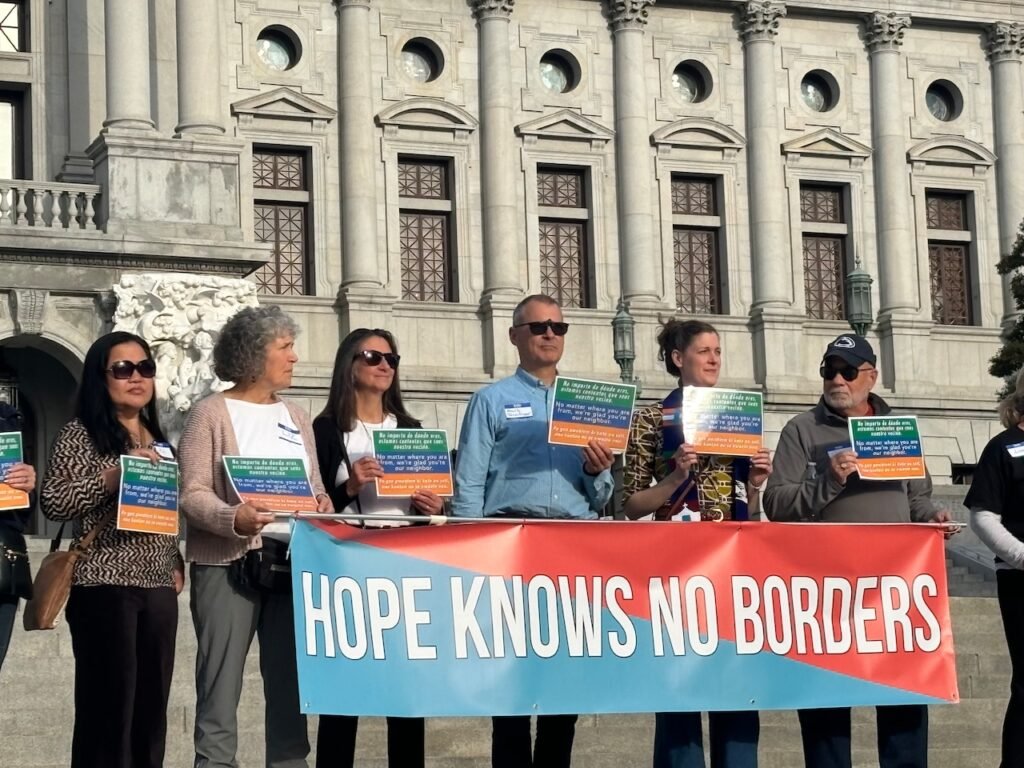Understanding the Impact of Mass Deportations: A Closer Look at Immigration Policies in the U.S.
Introduction to Mass Deportations in the U.S.
In recent years, the topic of immigration has sparked intense debate, particularly surrounding the potential mass deportations of millions living illegally in the United States. It is estimated that around 11 million individuals could be affected by such policies, many of whom have developed deep roots in their communities, forming relationships with family and friends. The reality is that a significant number of these individuals undertake jobs that are often viewed as undesirable by native-born Americans.
The Human Cost of Deportation Policies
Sarah Towle, an author and advocate, emphasizes the need for Americans to grasp the significance of the impending deportations. Her assertions highlight that the current deportation policies are particularly harsh and detrimental to the most vulnerable members of society. Towle’s research suggests that these policies run counter to the teachings of compassion found in the moral philosophies of influential figures like Jesus, Muhammad, Buddha, and Krishna.
Insights from "Crossing the Line: Finding America in the Borderlands"
In her impactful book, "Crossing the Line: Finding America in the Borderlands", Towle shares harrowing accounts of individuals fleeing life-threatening situations in their homelands. Many are seeking asylum under both U.S. and international law, yet when they reach the southern border, they often face inhumane treatment.
Towle’s observations during her engagements, including a talk at Grace United Methodist Church in Harrisburg, illustrate the brutality experienced by men, women, and children on their journey toward safety. Most of these individuals are not criminals but ordinary people forced to make heartbreaking choices for the sake of their families.
The Reality of Asylum Seekers
The experience for asylum seekers, whether they attempt to cross borders clandestinely or formally request asylum, is often tragically similar. They encounter a system that treats them with suspicion and hostility. The responsibility for this cruelty, as Towle argues, lies not only with those enforcing these policies but with the voters who enable such practices.
Conditions Behind Bars
Towle describes the chilling conditions that many immigrants face upon apprehension. They are often placed in facilities known colloquially as "las hieleras" or "iceboxes," characterized by extreme cold designed to keep detainees uncomfortable. This treatment extends to holding them in cramped enclosures or “dog pens” for days at a time, eventually leading to their transfer to detention centers with even harsher conditions.
Reports indicate that detainees are subjected to strict confinement measures, including being shackled in five-point restraints. This kind of inhumane treatment raises troubling questions about the values upheld within the U.S. justice system.
Historical Context of Immigration Policies
Towle’s investigation traces the roots of these harsh immigration policies beyond the Trump administration. Historically, the U.S. has implemented stringent measures against immigrants, with policies dating back to President Jimmy Carter’s era, which first introduced the concept of detaining individuals at the border. This progression continued under various administrations, including that of Ronald Reagan, who commoditized immigrant detention.
Even Bill Clinton maintained these controversial practices, while George W. Bush introduced the detainment of entire families—a sharp departure from traditional approaches toward immigration.
The Evolving Narrative
The bottom line is that America’s approach to managing immigration appears to have remained consistently punitive. As the possibility of mass deportations looms, many fear that the nation is on the brink of entering an era fraught with human rights violations against those seeking refuge.
Toward a More Compassionate Approach
Towle’s work urges readers to reconnect with the core values that have historically defined America as a sanctuary for the oppressed. Her narrative implores citizens to reflect on the societal implications of their attitudes and actions towards immigrants.
A Call for Empathy
Ultimately, the conversation surrounding immigration is not just about policies but also about the shared humanity that binds us all. By fostering a culture of empathy and compassion, the nation can reclaim its moral high ground.
Conclusion: The Future of U.S. Immigration Policy
Understanding the complexities of immigration affects not only those who migrate in search of better lives but also influences the core identity of America. The challenge lies in balancing national security with humanitarian efforts to support those in need. If the values of compassion and community upliftment are not upheld, the consequences may ripple through generations, potentially changing the very fabric of American society.
For further reading on the nuances of U.S. immigration policies and the moral imperatives involved, consider exploring resources from Human Rights First, American Immigration Council, and ACLU’s insights on immigration.


